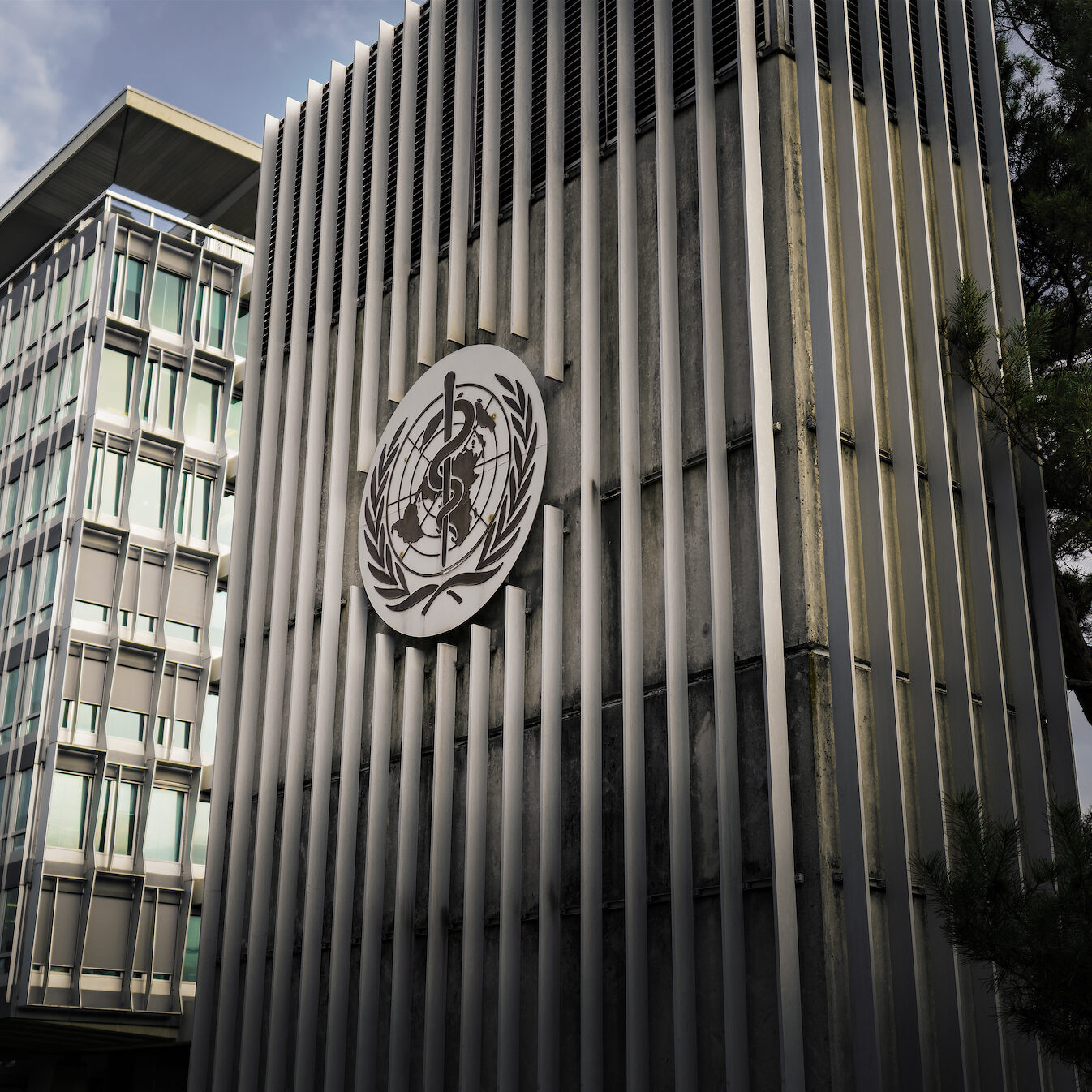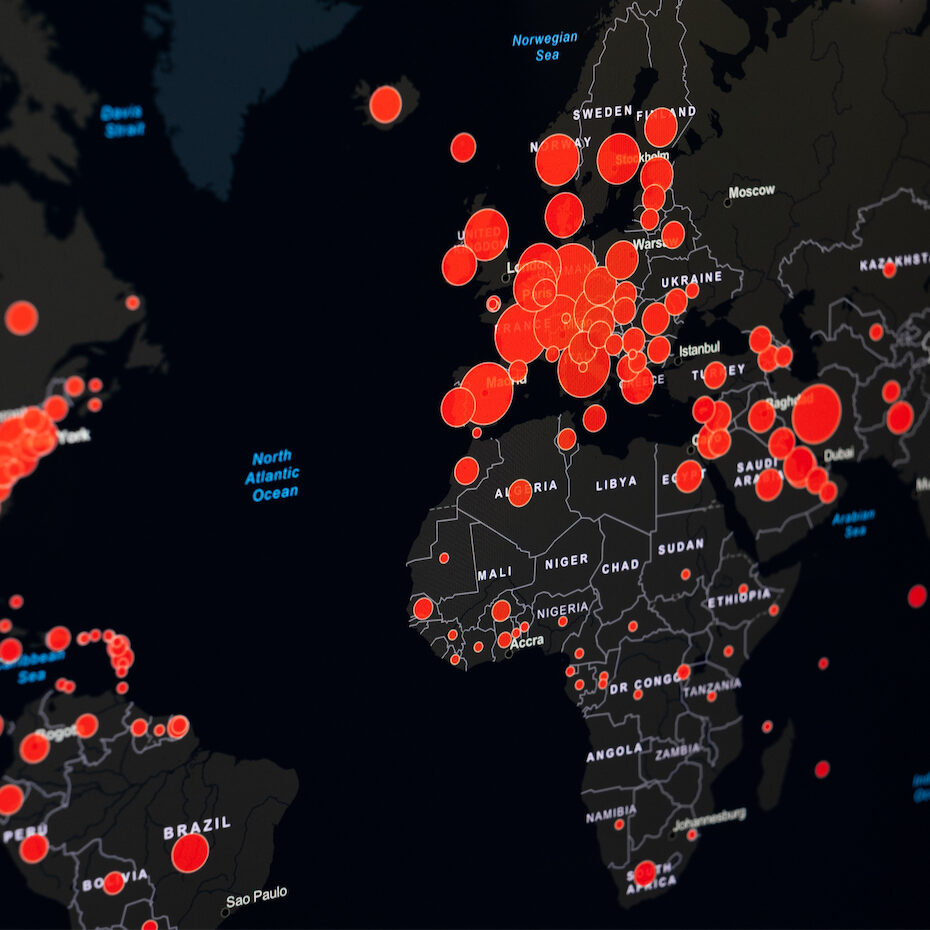Overview
Topics
Global Health Law & Governance — General
COVID-19 and Pandemic Response
One Health
Access to Medicines and Vaccines
Global Health, and Trade and Investment
CIL’s Global Health Law and Governance Program, led by Dr Ayelet Berman, focuses on research, teaching, capacity building and convening in the field of global health law and governance.
In the wake of the COVID-19 pandemic, global health law has emerged as a new topic of priority for international law. Global health law encompasses the legally binding and non-binding rules and institutions which regulate, govern or impact public health.
Global Health Law regulates topics such as the prevention and management of infectious diseases (such as COVID-19 or influenza), non-communicable diseases (such as diabetes and cancer), antibiotic resistance, or the regulation of foods and medicines. Examples of international law and policy instruments include the Framework Convention on Tobacco Control (FCTC), the International Health Regulations (IHR) or the Global Strategy for the Prevention and Control of Non-communicable Diseases.
Global health governance is composed of formal and informal organizations as well as governmental and private actors. While the World Health Organization (WHO) remains central, private foundations such as the Bill and Melinda Gates Foundation, multi-stakeholder partnerships such as the Global Fund to Fight AIDS, Tuberculosis and Malaria and COVAX, or private actors such as Pfizer and Oxfam, play critical roles.
Global health law intersects with other fields of international law such as international trade law (touching on matters such as export restrictions on medical goods, or matters related to intellectual property rights which are protected under the TRIPS Agreement and their impact on access to medicines), international investment law (such as the Philip Morris vs. Uruguay case regarding tobacco plain packaging), international environmental law (covering matters such as the impact of climate change or pollution on health) and international human rights law (e.g. the right to health).
The unprecedented health and economic crisis engendered by the COVID-19 pandemic has revealed a number of weaknesses and gaps in the existing global health infrastructure. Any reform attempts, such as the current discussions over a pandemic treaty, are bound to meet with significant political, economic and financial challenges.
The Global Health Law and Governance program seeks to contribute to the ongoing debates on these current issues. It collaborates with other national and international actors in the field. Among others, it partners with the Duke-NUS Centre for Outbreak Preparedness on a regional health security initiative. Dr Ayelet Berman is also a member of the International Law Association’s Steering Committee on the White Paper on One Health.
We would love to hear from you! If you’re interested to learn more about the program or are interested in collaborating with us, please contact Dr. Ayelet Berman, Lead of the Global Health Law and Governance Program at cilayel@nus.edu.sg.
Global Health Governance — General
Global health law and governance has undergone a major evolution. After the establishment of the World Health Organization in 1948, the World Bank also started taking on an important role in financing health related projects in the 1980s. In the past three decades, the role of non-state actors (such as CEPI, IFPMA or the Bill and Melinda Gates Foundation) and multistakeholder partnerships (such as GAVI, the Global Fund and Covax), has greatly increased.
COVID-19 and Pandemic Response
The International Health Regulations (2005) are the main international legal framework for pandemic preparation, prevention, and response. Despite its legally binding nature, many countries have not complied with their obligations under the treaty, leaving them unprepared for the COVID-19 pandemic. The pandemic has also revealed many other gaps in the global legal infrastructure, such as limitations to the WHO’s powers, the absence of mechanisms for preventing zoonotic disease spillovers, and the lack of legal instruments ensuring fair and equitable access to medicines and vaccines.
One Health
The ‘One Health’ concept recognizes that human, animal, and environmental health are interlinked, and calls for interdisciplinary integration and cross-sectoral cooperation. One Health covers matters such as the prevention of zoonotic diseases, antimicrobial resistance, and food security. The Covid-19 pandemic has displayed the critical importance of a One Health approach, yet the approach remains largely underdeveloped in prevailing international law and policy. Many commentators stress the importance of adopting a One Health approach in preventing future pandemics, including in a future pandemic treaty.
Access to Medicines and Vaccines
Thanks to technological advancements, new medicines are developed at high speed. Yet many developing countries lack the resources to purchase such medicines. While intellectual property rights encourage innovation (and are protected under the TRIPS Agreement and many other Free Trade Agreements with intellectual property chapters), they also risk hindering speedy and equitable access to medicines. Other challenges to fair and equitable access to medicines include insufficient development and production capacity in developing countries, as well as limitations on technology transfer.
Global Health, and Trade and Investment
Global health law intersects with other fields of international law such as international trade law and international investment law. Matters such as export restrictions on medical goods or the impact of the TRIPS Agreement on the affordability of medicines are examples of this intersection. Bilateral Investment Agreements which protect foreign investments in home countries may also give rise to claims whenever states adopt laws or regulations to protect public health interests – as was the case with the claim brought by Philip Morris against Uruguay after Uruguay issued tobacco plain packaging rules to restrict tobacco marketing.







